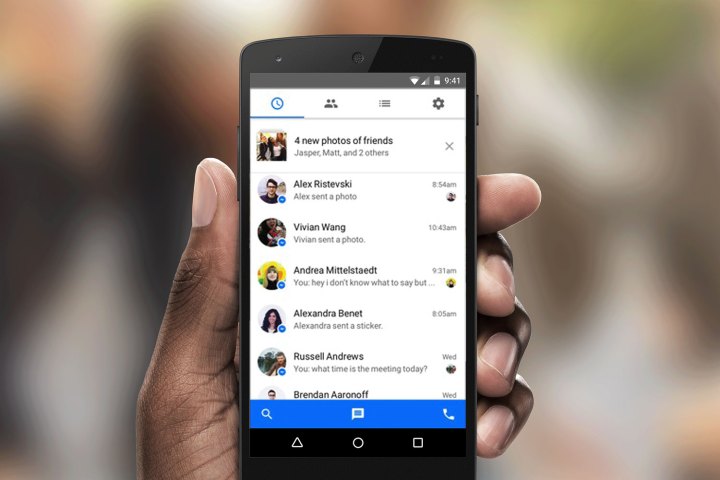
The Apple vs. FBI showdown rejuvenated talks about privacy on our smartphones, and pushed many companies to strengthen encryption for their services — for example, Google, WhatsApp and Facebook all promised to bolster encryption on their apps, and the latter may finally be ready to take action. This summer, Facebook may offer up an encryption mode in its Messenger app, according to The Guardian.
Apple and Google began encrypting smartphones by default in recent years, and Apple has offered end-to-end encryption in iMessage — that means only the sender and receiver can see the content of the message. WhatsApp, which is owned by Facebook, made the first move in the wake of the controversy between Apple and the FBI that was tied to the San Bernardino, California, shooting case — it enabled end-to-end encrypted messaging by default for its more than 1 billion users.
Not too long after, Google announced plans to release a new messaging app called Allo this summer, and the app will feature an Incognito Mode that uses end-to-end encryption. The mode is a compromise — a way to have end-to-end encryption, while still being able to use features like the artificially intelligent Google Assistant, a Google representative told Digital Trends.
It looks as though Facebook Messenger’s “encrypted mode” will work similarly, as enabling it app-wide would cripple new machine-learning features the social media giant is adding in. Facebook unveiled bots for the Messenger platform at its developer conference in April. These bots offer a wide range of features, such as booking a hotel through a messaging thread, or accessing the latest news headlines.
These rather personal features that are primarily curated by user data won’t work if end-to-end encryption was on by default in Messenger or Allo. By offering an encrypted mode, Google and Facebook very much want to offer people a secure environment, but do not want to throw away their primary goals of utilizing user data to improve their other services.
Facebook said it does not “comment on rumor or speculation.”
While Allo is encrypted, Google faced backlash for not enabling end-to-end encryption by default in the new app. One Google engineer vowed to push for default end-to-end encryption before the app launches in the summer — we’ll have to wait and see if his efforts succeeded.
End-to-end encryption has been causing problems for law enforcement that need to access devices in criminal or terrorism investigations. Authorities cannot simply go to Apple or WhatsApp and ask for the content of the messages, as the companies themselves cannot access them. FBI Director James Comey has warned that we will be seeing more access-related cases as encryption becomes more widespread.
Apple rejected a court order in February that demanded the company to create a tool to weaken the encryption on the San Bernardino shooter’s iPhone. The company worried that in the wrong hands, this tool could jeopardize the security and privacy of all Apple customers. Most of Silicon Valley agreed.
The FBI dropped the case, and another one in New York, after it paid for a technique for breaking into specific iPhone models.
Facebook has owned WhatsApp for almost two years now, so it’s not surprising to see the company porting over some well-known and will-liked features such as encryption into its own messaging app.

